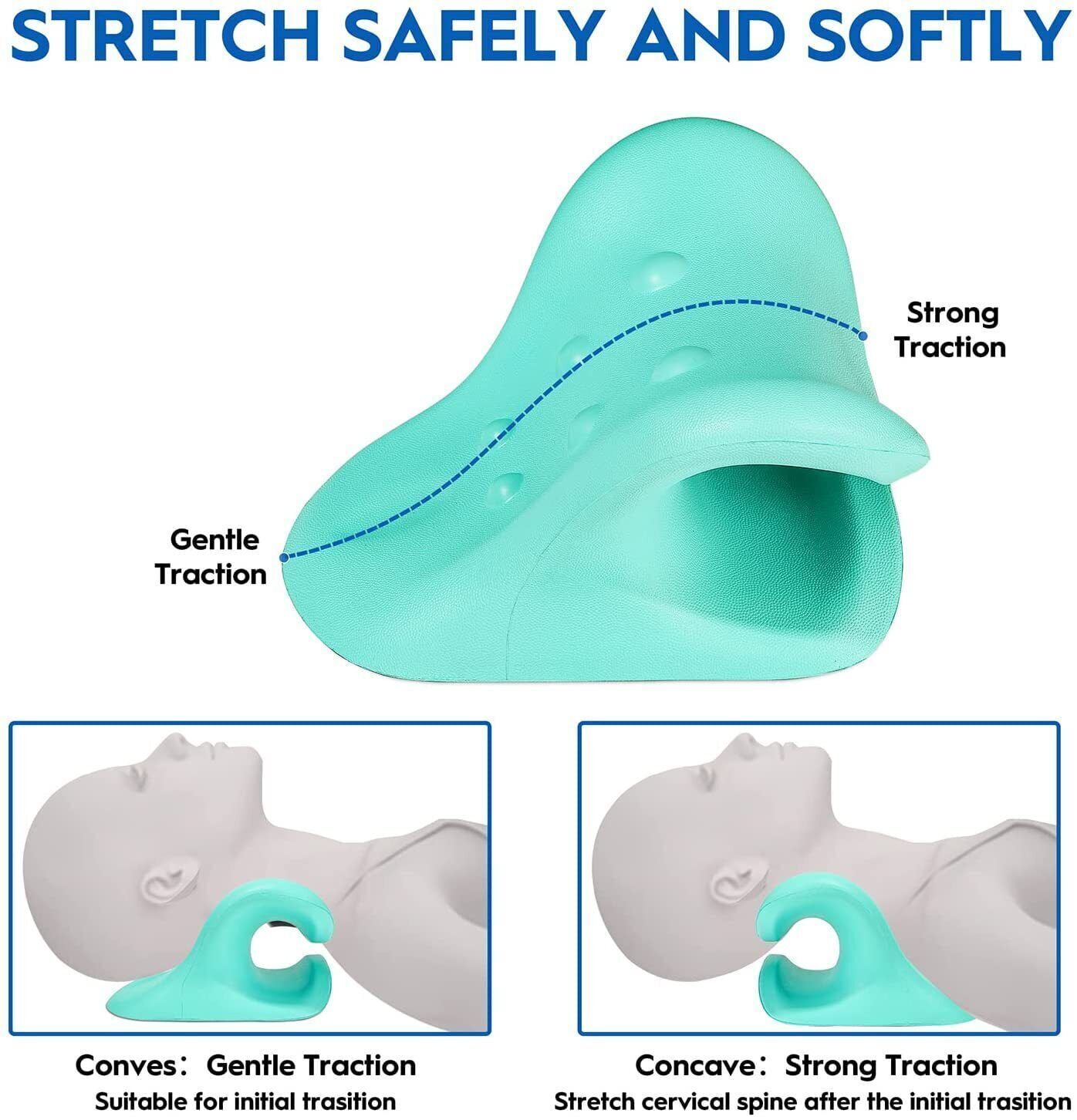Discover Neck Cloud: A Straightforward Service for Neck Discomfort and Stress
Discover Neck Cloud: A Straightforward Service for Neck Discomfort and Stress
Blog Article
The Effect of Stress on Neck Pain: Techniques for Decreasing Stress and Discomfort
In today's hectic world, it's clear that stress and anxiety has come to be a widespread element in the start and worsening of neck discomfort. The elaborate partnership in between tension and muscle stress commonly leaves people looking for relief from the discomfort that ensues. By checking out targeted approaches intended at decreasing tension and promoting leisure, one can start to resolve the source of neck discomfort and work towards a more well balanced state of well-being. Join us on a trip to unwind the effect of stress and anxiety on neck pain and uncover effective means to reduce discomfort and boost overall lifestyle.
Recognizing Stress-Related Neck Discomfort
Neck discomfort is a typical issue that can usually be connected to stress. Stress-related neck pain can show up as tension, rigidity, or discomfort in the neck and shoulder location. The connection between stress and anxiety and neck discomfort hinges on the body's physiological feedback to stress, which can result in muscular tissue stress and rigidity in the neck muscle mass. Persistent stress and anxiety can cause consistent neck discomfort and aggravate present problems like cervical spondylosis or muscular tissue stress.

Identifying Common Stress Areas
One usual stress location is the neck, where stress and anxiety usually shows up literally. Stress headaches, tight neck muscles, and restricted variety of motion are common signs of stress-related neck tension. Being mindful of these common stress areas can aid people recognize the physical indications of stress and anxiety and take actions to address them before they intensify into persistent discomfort or pain.
Applying Relaxation Techniques
To efficiently handle stress-related stress in the body, carrying out leisure techniques is important. Relaxation strategies are beneficial tools for reducing neck discomfort triggered by anxiety. Deep breathing exercises can aid relax the mind and loosen up tense muscles in the neck and shoulders (neck cloud). Exercising mindfulness reflection can likewise be valuable in relieving tension and promoting leisure. Progressive muscle mass relaxation, where you systematically tense and after that relax various muscle teams, can release built-up stress in the neck area. Additionally, tasks like yoga and tai chi include both physical activity and leisure, making them efficient techniques for minimizing stress and anxiety and neck discomfort. Taking normal breaks throughout the day to stretch and loosen up can prevent muscular tissue tightness and tension from collecting. By including these leisure techniques right into your day-to-day routine, you can help manage tension levels, reduce tension in the neck, and alleviate pain related to stress-induced neck discomfort.
Including Self-Care Practices
Including self-care techniques is essential for maintaining general well-being and managing stress-related neck pain effectively. Involving in normal physical task, such as gentle extending workouts or yoga, can assist relieve tension in the neck and shoulders. Exercising good pose throughout the day and taking frequent breaks from long term sitting or screen time can likewise prevent strain on the neck muscle mass.
In addition, focusing on sufficient rest and developing a constant sleep regimen can add substantially to reducing stress degrees and advertising relaxation. Developing a soothing going to bed routine, such as reading a book or taking a warm bathroom, can aid prepare the mind and body for peaceful rest. Additionally, preserving a well balanced diet regimen abundant in nutrients and staying moisturized can sustain general wellness and minimize swelling that may exacerbate neck pain.
Including mindfulness practices, such as deep breathing workouts or reflection, can help take care of stress and advertise leisure. Taking some time article source for oneself, taking part in leisure activities, and setting boundaries to shield individual time are additionally vital facets of self-care that can add to reducing stress and alleviating neck discomfort.
Looking For Expert Aid
Exactly how can people look at this web-site properly address persistent neck pain that is influencing their every day life and well-being? Seeking specialist assistance can be a crucial step in handling and easing neck discomfort. Consulting with health care professionals such as chiropractic practitioners, physical therapists, or orthopedic professionals can supply important insights and customized therapy plans. These professionals can perform comprehensive analyses to detect the underlying sources of neck pain and suggest ideal interventions.
Chiropractic practitioners focus on spine control techniques to improve positioning and lower stress in the neck location. Physical therapists offer targeted workouts and stretches to reinforce muscle mass, enhance versatility, and improve total neck feature. Orthopedic specialists can supply sophisticated medical interventions such as shots or medical alternatives for severe cases of neck pain.
Final Thought

Stress-related neck discomfort can materialize as stress, tightness, or pain in the neck and shoulder area. The link in between stress and neck pain lies in the body's physiological feedback to tension, which can result in muscle mass tension and tightness in the neck muscle mass. Stress headaches, tight neck muscle mass, and limited variety of activity are usual signs of stress-related neck stress. By integrating these relaxation strategies right into your day-to-day regimen, you can help take care of stress and anxiety levels, decrease stress in the neck, and reduce pain connected with stress-induced neck discomfort.

Report this page